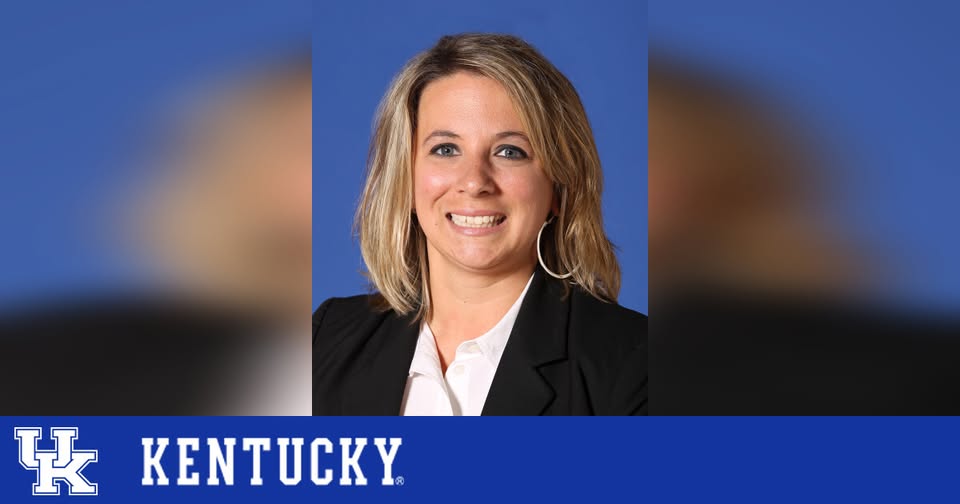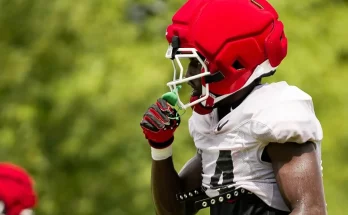The University of Kentucky continues to make its mark in collegiate athletics not only through its athletes and coaches, but also through the influential leadership of its administrators. One such leader, Rachel Newman Baker, Kentucky’s Executive Associate Athletics Director and Senior Woman Administrator (SWA), will serve her second year on the Southeastern Conference’s (SEC) Executive Committee, concluding her two-year elected term. This continuation of service is not just a nod to her achievements—it is a reflection of the deep respect she commands across the SEC and NCAA.
As the highest governing body within the SEC, the Executive Committee plays a vital role in shaping the direction of the conference. Baker’s position on this board exemplifies the University of Kentucky’s growing footprint in administrative excellence and gender equity in sports leadership.
Who Is Rachel Newman Baker?
Before diving into her role in the SEC, it’s worth understanding the journey and credentials that brought Rachel Newman Baker to this moment.
Rachel Newman Baker is no stranger to leadership. A proud graduate of the University of Kentucky, Baker returned to her alma mater in 2016 after holding key leadership roles at the NCAA. Her experience at the national level has made her a linchpin in the Wildcats’ continued efforts toward compliance, athlete welfare, and diversity in sports governance.
At Kentucky, she is responsible for overseeing compliance operations, gender equity, and student-athlete well-being, while also serving as the primary liaison for several women’s athletic programs. Her role as Senior Woman Administrator gives her a prominent seat at the table on key decision-making committees, both within the university and externally.
What Is the SEC Executive Committee?
The Southeastern Conference Executive Committee is composed of top administrators and faculty athletic representatives from each member institution. The committee is charged with setting policy, approving the conference budget, and serving as the ultimate governing body on legislative and procedural matters affecting the SEC’s 14-member universities.
This is no ceremonial post.
Committee members are deeply involved in navigating the ever-changing collegiate athletics landscape. From NIL (Name, Image, and Likeness) regulations to the college football playoff expansion, the SEC Executive Committee tackles pressing matters that affect not just the conference, but often ripple across the NCAA.
Baker’s Influence and Why Her Role Matters
Rachel Newman Baker’s ongoing presence on the SEC Executive Committee carries significant implications—not only for Kentucky, but for the broader movement toward gender equity and administrative excellence in college sports.
1. Representation in a Male-Dominated Field
College athletics, particularly in powerhouse conferences like the SEC, have traditionally been dominated by male administrators. Rachel’s role ensures that women’s voices are not only heard but valued in the room where the biggest decisions are made.
Her presence provides representation for women’s sports, student-athlete welfare, and issues that are often overlooked in male-majority committees.
2. Strategic Leadership for Kentucky
Having a seat at the table means Kentucky has a say in shaping the direction of the SEC. Whether it’s advocating for more equitable scheduling, improved safety protocols, or expanding postseason opportunities, Baker is able to directly influence policies that benefit the university and its student-athletes.
Her role ensures that Kentucky isn’t just following the trend—but helping to set it.
3. Policy Expertise From Her NCAA Tenure
Before joining Kentucky’s athletics department, Baker spent more than a decade at the NCAA, including time as Managing Director of Enforcement. That experience makes her uniquely equipped to navigate compliance-related complexities, student-athlete rights, and institutional accountability.
She brings national experience to a regional leadership role—something that is invaluable in today’s fast-evolving collegiate athletic system.
Initiatives and Impact at Kentucky
Baker’s work at UK has already yielded tangible results. Under her leadership:
- Gender equity reviews were launched to ensure that female athletes receive equal resources and support across sports.
- Kentucky strengthened its compliance education programs, helping both student-athletes and staff navigate NCAA regulations and NIL opportunities.
- She played a key role in formulating Kentucky’s response to COVID-19 athletic protocols, helping ensure athlete safety and eligibility during one of the most uncertain periods in NCAA history.
Furthermore, as SWA, Baker has been a fierce advocate for mental health initiatives and career readiness programs for student-athletes—ensuring they are prepared for life beyond the playing field.
A Broader Trend Toward Inclusive Leadership in the SEC
Rachel Newman Baker is part of a larger, but still slow-moving, trend toward more inclusive leadership within the SEC. While the conference has made significant strides, there is still room to grow.
According to recent statistics from the NCAA, only 12% of Division I athletic directors are women, and even fewer are women of color. The SEC has begun to see some movement in this area—especially with more women being appointed to executive roles like Senior Woman Administrator or Deputy Athletic Director.
Baker’s leadership reinforces the message that diverse voices belong in powerful rooms, and that conferences like the SEC are strongest when they reflect the athletes and communities they represent.
What This Means for Kentucky Student-Athletes
From a student-athlete perspective, Baker’s role can’t be understated.
Having someone from Kentucky on the SEC’s Executive Committee ensures that Wildcats’ needs and interests are represented directly at the top levels of decision-making. This ranges from championship formats and academic eligibility to new technologies in athlete training and welfare.
It’s a win for athletes across all sports—particularly women’s sports programs that benefit from having a visible, vocal advocate like Baker in power.
What Lies Ahead in Her Final Year on the Committee?
As she enters the final year of her term, Baker faces a number of critical challenges and opportunities:
- NIL Expansion and Regulation: The SEC will continue to grapple with how NIL policies are interpreted and enforced across member institutions.
- Mental Health Priorities: More focus is being placed on student-athlete mental health, and Baker is well-positioned to lead conversations around sustainable support systems.
- Gender Equity Audits and Title IX Compliance: As women’s sports continue to grow in popularity, especially with the rise of women’s basketball and softball, ensuring equal access and exposure will be a hot-button issue.
- Postseason Structure for Football and Other Sports: With the expanded CFP (College Football Playoff) format coming into play and continued debates around scheduling and seeding, Baker will help determine how competitive equity is maintained.
Praise From Colleagues
Those who work closely with Baker consistently commend her for her integrity, foresight, and collaborative approach.
Kentucky Athletic Director Mitch Barnhart has often praised her as a “pillar of our program,” noting that “Rachel brings the highest level of professionalism, knowledge, and care to everything she does. Her leadership on the SEC Executive Committee is well deserved and reflects her deep impact not just at UK but across the league.”
Her colleagues within the SEC echo that sentiment, often seeking her perspective on complex issues involving student-athlete support, policy design, and legal compliance.
A Role Model for the Next Generation
Perhaps Baker’s most enduring legacy is that she is a trailblazer for the next generation of sports administrators, especially women looking to enter what has long been a male-dominated field.
From speaking engagements at NCAA leadership conferences to mentoring young professionals within UK’s athletic department, she is actively investing in the future of sports governance.
By staying grounded in her principles and always keeping the student-athlete at the center of the conversation, she’s earned the respect of peers and inspired countless others to follow her lead.



